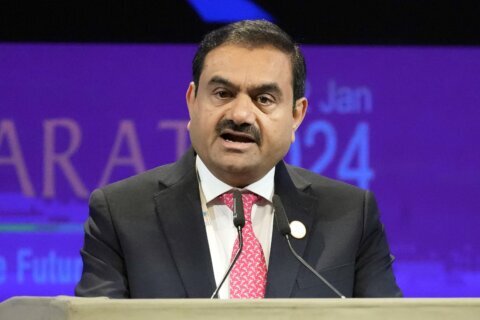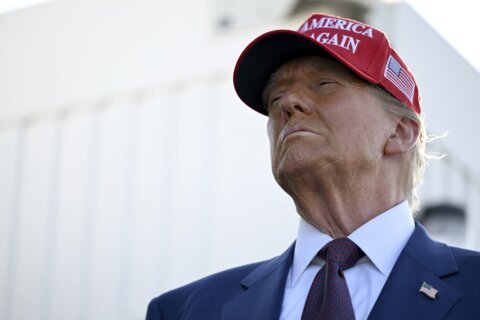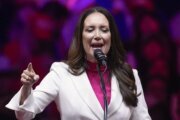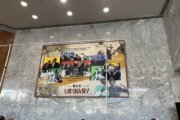Higher education in the U.S. is at an inflection point, some observers say, amid diminishing public trust and ongoing concerns about issues such as affordability, accessibility, safety, diversity and freedom of speech and expression. Experts inside and outside colleges and universities express wide-ranging critiques of the position and direction of higher ed in general.
For Peter Berkowitz, the path forward lies in recovering lost elements of the classic liberal arts education and adding curricular components that can better educate students and help them become informed, engaged and civil citizens. Berkowitz is the Tad and Dianne Taube Senior Fellow at the Hoover Institution at Stanford University in California. The columnist, author and editor has a J.D. and a Ph.D. in political science from Yale University in Connecticut, a master’s in philosophy from the Hebrew University of Jerusalem in Israel and a bachelor’s in English literature from Swarthmore College in Pennsylvania. He taught political philosophy in the department of government at Harvard University from 1990 to 1999, then constitutional law and jurisprudence at George Mason University’s Antonin Scalia Law School in Virginia from 1999 to 2006.
Berkowitz also has led seminars on the principles of freedom and the American constitutional tradition in the U.S. and Israel, for students from Burma at the George W. Bush Presidential Center and for Korean students at Underwood International College at Yonsei University in South Korea. He served as executive secretary of the U.S. Department of State’s Commission on Unalienable Rights and, from 2019 to 2021, senior adviser to the secretary of state. The interview has been edited for length and clarity.
Q: In traditional U.S. higher education, what is a liberal education? Is it what we now call a liberal arts education?
Liberal arts education has become synonymous with the older term, liberal education. I prefer the term liberal education because it’s shorter and goes back to the best thinking about education for freedom. It’s the kind of education that enables young men and women to take advantage of the benefits of freedom and to discharge their responsibilities as free and democratic citizens.
Q: Can you say more about that in terms of the historical importance of a liberal education?
In a free society, liberal education, in a sense, runs from the beginning of formal education in kindergarten to the capstone at a college or university. And if we are lucky, our education continues as long as we breathe. As citizens of a rights-protecting democracy, one needs to acquire literacy and numeracy — the basics that we learn in kindergarten and grade school. We build on the fundamentals and gradually gain an introduction to literature and history, society and politics, math and science, America and other peoples and nations. There is a hierarchy. You learn arithmetic before you learn geometry. You must learn to read before you can delve into history. All that is part of educating for freedom.
I do not believe everybody has to go to college or university to be a good citizen. I would like to see the country devote more resources to two-year, post-high school programs where young people can acquire skills that enable them to earn a good living and contribute to the general welfare. At the same time, it’s right and fitting that colleges and universities offer a capstone for those who wish to broaden and deepen their understanding and refine their ability to think for themselves.
[Read: What a Liberal Arts College Is and What Students Should Know.]
Q: You’ve observed that emphasis on a strong liberal education in America has changed. How so, and what would you say has gone wrong?
The most important change occurred following the social and political upheavals of the 1960s. In the 1970s, students arrived in graduate school with a new view of the purpose of higher education. The new view was that education was politics by other means. That generation aggressively pursued a partisan social and political agenda in graduate school and continued to do so as faculty members. The United States, they believed, was a drastically flawed nation. And they were convinced that it was the college or university’s job to repair the country by promoting social justice through scholarship and teaching. This meant enlisting students for political action and establishing political litmus tests — unwritten but strictly enforced — in hiring and tenuring.
This represented a repudiation of the traditional understanding of liberal education: to seek and transmit knowledge and prepare students for life in a free society by engaging them in robust conversations about the enduring moral and political questions as they come to light in great books, seminal ideas and defining events. There are complications. The university should maintain neutrality on political controversies, but that itself serves a larger political purpose. By creating a framework and community in which students can debate the issues and examine all sides of the questions, universities form a tolerant, civil and educated citizenry.
Q: So, the recent and current student conflict on U.S. college campuses around freedom of speech and expression — often hostile and sometimes violent — does not occur in a historical vacuum?
Correct. Students have been encouraged first by their K-12 teachers and then also by their professors to treat free speech as harmful and contrary to education. We’ve come to believe that universities must create, to use the fashionable jargon, a “safe place” for students. That means censoring — regulating, suppressing and punishing — speech that dissents from campus orthodoxy. This turns educational institutions into indoctrination camps. Opinions should be shared with civility. All members of the community should be treated with basic respect and dignity. Those requirements are central to liberal education.
At the same time, an opinion with which one disagrees is not an assault on one’s dignity or a violation of one’s rights. If you’re at a college or university and you haven’t recently heard an opinion that disturbs you, that unsettles you, that forces you to think differently — then the university is failing in its mission. Harassment and intimidation are another matter. They have no place in a community of inquiry and learning. But an opinion about public policy or politics that conflicts with your opinions and inclinations? We come to universities in part to examine such opinions, to discuss them, and, if one thinks they’re wrong or noxious, to argue against them — and, if one is persuaded that they are correct, to adopt them as one’s own.
[READ: What You Can Do With a Liberal Arts Degree.]
Q: To the extent that a liberal education has in some ways strayed from its origins, what can be done to restore it?
The challenges are great. Students have been encouraged to restrict speech, to censor others and to restrain themselves in expression of their views for fear of being attacked for wrong thinking. In addition, universities have hollowed out the curriculum. At top public and private universities, a talented young 18-year-old can pretty much study whatever he or she wants. One must eventually choose a major, but the university offers little guidance. If you ask, “What should I study to become an educated person?” the answer will be “What are you interested in?” That’s a different question.
Our universities ought to be able to state what an educated person should know. They should identify the fundamental domains of knowledge to which all students should be introduced. They should direct students to the essential books, ideas, events and controversies. Yet most of our top universities do not require study of the basic principles of American government. They do not require study of the basic principles of economics. They do not require study of the basic assumptions and elements of law. They do not require study of the basic dynamics of international relations. Many of our elite universities require, at most, one year of study of a foreign language. One year, though, especially as an adult, is not nearly enough to learn a foreign language. Yet speaking and reading a foreign language provide a wonderful window on and introduction to other peoples and other nations.
Substantial reform is urgent. First, reformers must find friendly administrators and faculty and encourage them to create classrooms in which professors establish an atmosphere that enables students to examine the many sides of issues and genuinely exchange opinions. In my experience, students discover that they like robust discussion, answering questions about their own opinions, hearing and grappling with others’ opinions that differ from theirs. They discover that their opinions are not as solid and secure as they had believed and that the opinions of others that they supposed were flawed and benighted shed no small amount of light.
Universities should also establish a core curriculum — a basic set of courses in the humanities, social sciences and sciences that all students must take. That does not mean the elimination of electives. College is a four-year undertaking. Suppose we took two semesters — 25% of an undergraduate’s courses — to introduce students to American political ideas and institutions, European history, classical Greece and Rome, modern literature, the Bible, biology, physics and at least one class on the history, literature, beliefs and political system of some non-Western people or civilization. Being a hardliner, I would throw in a requirement that all students take at least two years of a foreign language and demonstrate an ability to read and write in it.
Second — and we have seen this happening in Washington, D.C., for some time now — we should create summer programs that provide supplements to undergraduates, offering the kinds of vital courses they aren’t receiving in college. Many such programs already take place in Washington every summer, largely offered by conservative organizations, to introduce students to the treasures of our civilization and the challenges it faces. That does not mean sweeping under the rug or suppressing the mistakes, the disadvantages, the sins that have been committed by peoples and nations in the West.
A third promising area of reform consists in building centers for the study and teaching of civic thought at our public universities. Programs at Arizona State University, the University of Texas–Austin, the University of Florida and the University of North Carolina are leading the way. The aim is to create within these great public universities centers of excellence in liberal education that focus on politics and citizenship. These programs do not endeavor to make students conservative or progressive, but rather more thoughtful about their rights and responsibilities as citizens in America’s rights-protecting constitutional democracy.
An example: I teach a class for undergraduates at Stanford — part of the Stanford Civics Initiative — about the varieties of conservatism in America. The title is somewhat provocative, suggesting that conservatism in America is not, as commonly supposed, a single, settled doctrine. Rather, it is constituted in part by a controversy over its assumptions and aims.
The class begins with John Locke’s account of individual freedom and limited government because he articulates fundamental principles on which American constitutional government is based, and students should appreciate that which conservatives in America seek to conserve. In the second week, we read Karl Marx, whose writings represent the single most influential critique of the American constitutional order and its fundamental principles. We read Marx because students should also understand the most powerful criticisms to which the American constitutional order, which conservatives seek to conserve, has been subject. I certainly have opinions on Locke and Marx. I do not try to hide them from the students. Nor do I seek to impose them on students. My overarching purpose is to ensure that students leave the class better informed and more thoughtful about the issues.
A fourth approach consists in the creation of new institutions of higher education grounded in a commitment to free speech and study of the controversies at the core of America and the West. I have in mind, for starters, the University of Austin in Texas and Ralston College in Georgia.
[READ: What a U.S. Liberal Arts Education Can Provide International Students.]
Q: Why does a strong liberal education matter to students, schools, the U.S. and beyond?
It matters greatly. In standing up the University of Virginia, Thomas Jefferson insisted that education is essential to democratic self-government. In America’s rights-protecting democracy, power derives from the people, who elect representatives. To cast their votes responsibly, citizens must seriously consider the issues. At its most basic, this requires literacy and numeracy. Every year we see a more complex society, one that calls for understanding of science, American history, religion, war, the world beyond our borders and more.
The work of democracy depends on a literate and educated citizenry. That work includes caring for ourselves and caring for our families, cooperating with fellow citizens, advancing the public interest through public debate and voting, and, in some cases, serving in the military and in government. By creating an environment in which students can speak freely and encounter a diversity of opinions, liberal education fosters civility and toleration. Although we are people of many different opinions, we broadly share — and must learn to appreciate better the importance of broadly sharing — ideas at the heart of the Declaration of Independence: All human beings are by nature free and equal, and American government in the first place seeks to secure for Americans the rights of all human beings.
A truly liberal education counters the propensity on both the left and the right in our politics today to despise the other side. We like it when people reinforce our opinions and agree with us. It also turns out to be pleasant — and it requires practice — to examine our opinions, learn from the opinions of others and revise our thinking as we encounter new evidence and arguments. Proper liberal education not only makes us better informed about our nation — its benefits, burdens and responsibilities — and the nations of the world, but also makes better citizens by cultivating our moral imaginations, enabling us to see matters from multiple perspectives and teaching us to enjoy the company of and benefit from those who see matters differently.
It is important to mention that the United States faces formidable challenges from abroad, and these implicate liberal education. I served as head of the U.S. Department’s of State’s policy planning staff from 2019 to 2021. We took very seriously the challenge presented by the People’s Republic of China. The Chinese Community Party, which governs China dictatorially, believes that China has been engaged in strategic competition with the U.S. for decades. At stake is whether world order will reflect the CCP’s authoritarian norms and practices or, rather, will incline toward the principles of freedom and democracy at the heart of the American experiment.
To defend and vindicate our principles, we must understand them. And to understand them, in all their richness — and with an appreciation for our shortcomings — we must renovate our educational system based on the essentials of liberal education. That will equip us to know ourselves better, cooperate as citizens and rise to the challenges we confront at home and abroad.
More from U.S. News
College vs. University: What’s the Difference?
College Campus Protests: What Students Should Know Before Taking Action
Diversity Questions for Colleges: What to Ask
Q&A: How Strengthening Liberal Education Can Help College Students Become Good Citizens originally appeared on usnews.com







